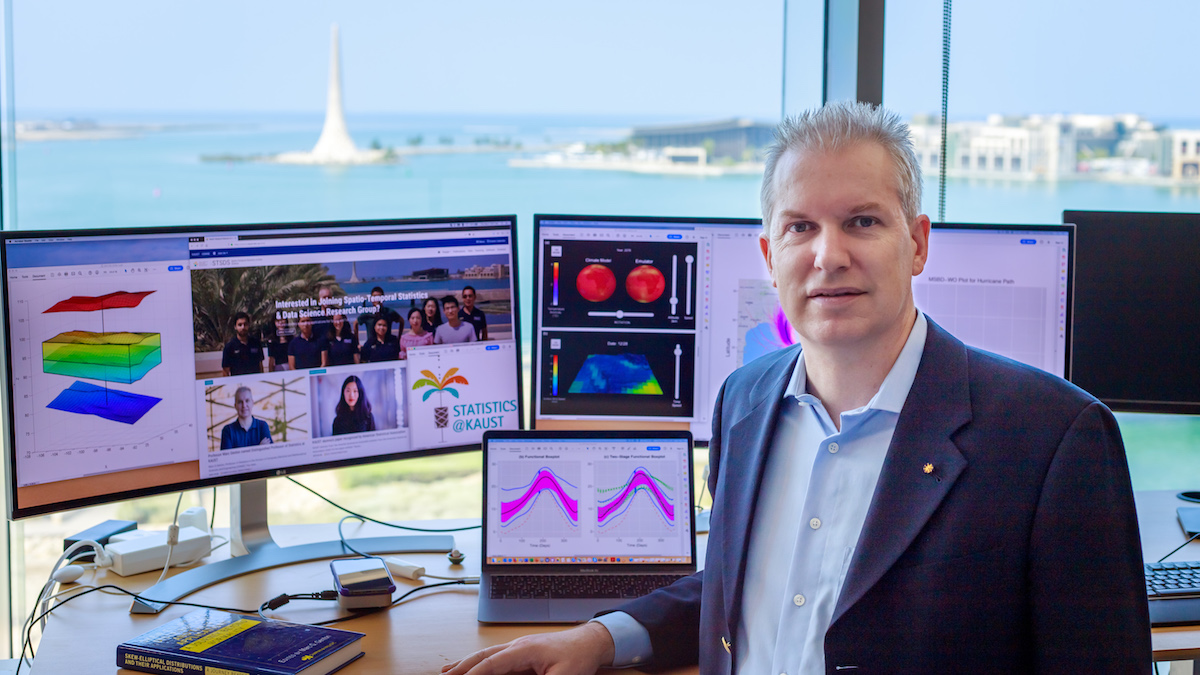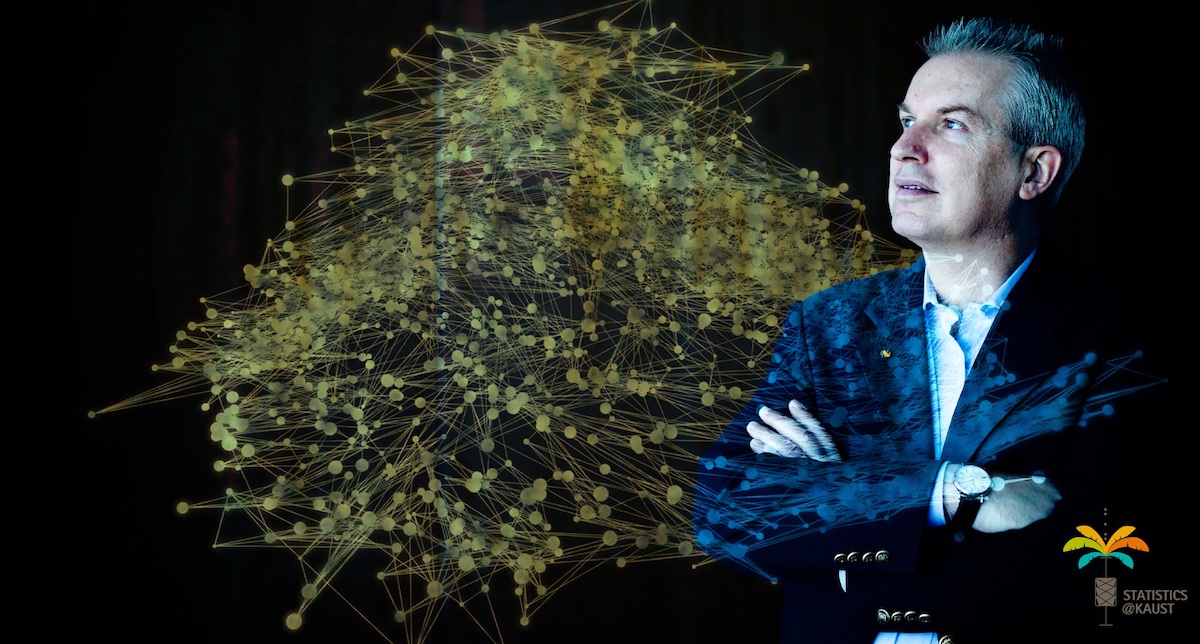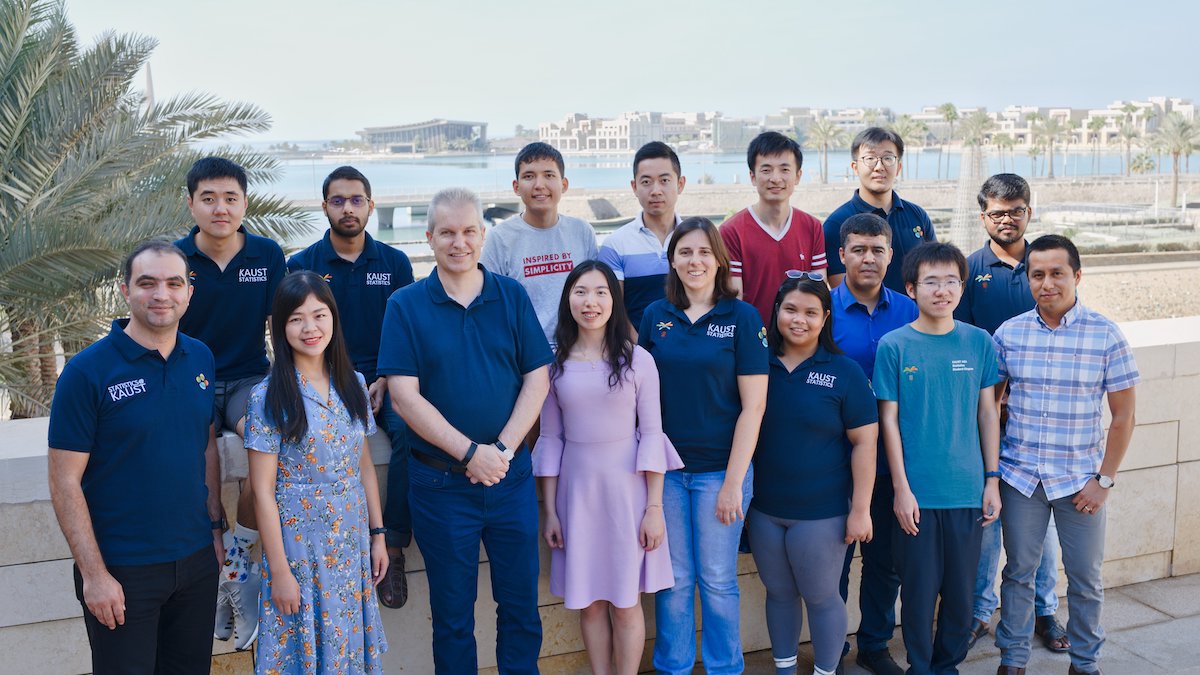KAUST Distinguished Professor Marc Genton awarded lectureship

KAUST Distinguished Professor Marc Genton was recently named as the 2020 Georges Matheron Lecturer of the International Association for Mathematical Geosciences. File photo.
-By David Murphy, KAUST News
Marc Genton, chair and distinguished professor of the KAUST Statistics Program, was recently selected as the 2020 Georges Matheron Lecturer of the International Association for Mathematical Geosciences (IAMG).
As an established member of the IAMG—and a researcher with proven analytical ability in the field of spatial statistics or mathematical morphology—Genton will present a lecture at the 36th International Geological Congress (IGC), which will be held in Delhi, India, from March 2 to 8.
The Georges Matheron Lecture Series was established in 2006 to honor the legacy and seminal work of the influential French engineer and mathematician Georges François Paul Marie Matheron. Matheron is also known as the founder of modern geostatistics and the co-founder of mathematical morphology.
Genton, who is also the head of the KAUST Spatio-Temporal Statistics & Data Science (STSDS) research group, remarked that he is pleased and honored to have been selected for the prestigious role.
"I am a lifetime member of the IAMG, and it is in one of its journals, Mathematical Geology, that I published my first paper in 1998 from my Ph.D. thesis at the Swiss Federal Institute of Technology on the topic of highly robust variogram estimation," he stated. "So, it feels like going back to my roots [from] more than 20 years ago...I am also delighted for Statistics at KAUST to be recognized in this wonderful way!"

As the 2020 Georges Matheron Lecturer, Distinguished Professor Marc Genton will present a lecture at the 36th International Geological Congress in India in March. File photo.
Covering Matheron's theory of regionalized variables
Genton has an impressive track record of over 360 presentations at conferences and universities worldwide. For his upcoming IGC lecture, he plans to cover Matheron's theory of regionalized variables regarding robustness and efficiency in variogram estimation, as well as parametric variogram models allowing for a transition from second-order to intrinsic stationarity and transformed Gaussian random fields.
"I will then describe a large-scale problem of quantifying the uncertainty of global climate model outputs such as temperature or wind energy potential based on geostatistical simulations from models fitted to more than 1 billion space-time data values," he explained. "I will advocate the visualization of the results based on apps available for smartphones with virtual reality mode."
"Finally, I will present ExaGeoStat, a high-performance unified software for geostatistics on manycore systems that has exascale computing capability—that is, 1 billion billion (10^18) calculations per second," Genton continued. "It is developed at KAUST and can run on one's laptop, desktop, cluster [and] GPUs and [on] the supercomputers of tomorrow."

KAUST Distinguished Professor Marc Genton (first row, third on left) leads the University's Spatio-Temporal Statistics & Data Science research group. File photo.
"[O]n the Statistics program side, I will aim at bringing [the program] to the next level of international visibility and recognition and attract the best students to become the statisticians and data scientists of tomorrow," he stated.
Related stories:
- KAUST Professor Boon S. Ooi elected Fellow of U.S. National Academy of Inventors
- Transforming electronics
- Developing sensor solutions
-
KAUST Associate Professor Andrea Fratalocchi elected Fellow of the Optical Society

